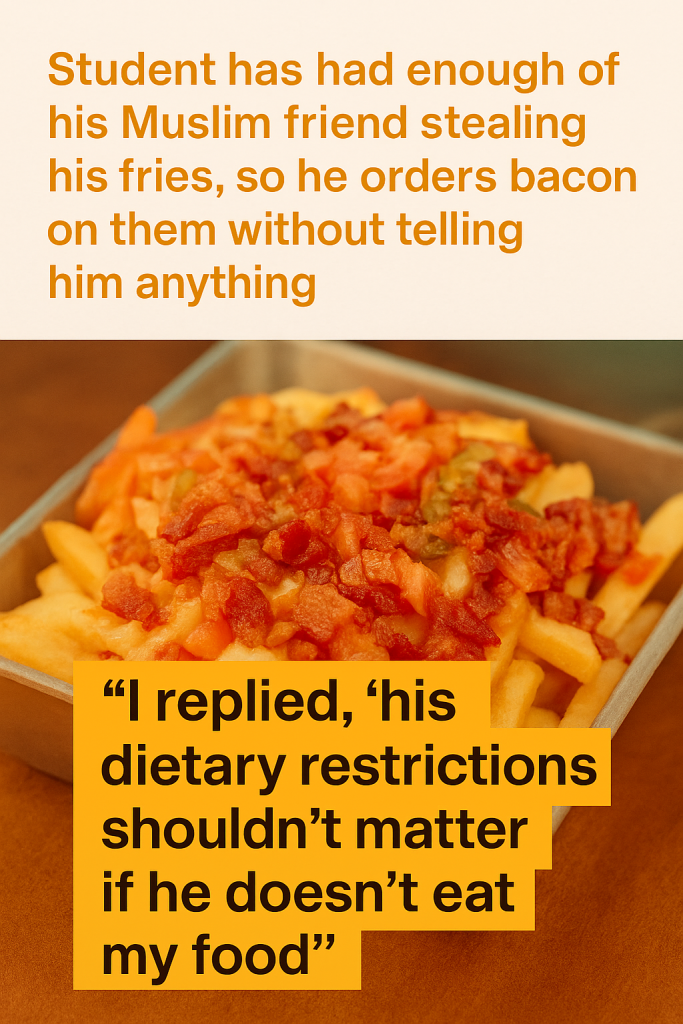In a story that’s sparked both laughter and debate online, a university student’s attempt at a lighthearted prank involving fries and bacon toppings has drawn widespread attention—and raised important questions about friendship and respect.
According to social media posts that have since gone viral, the incident began when one student grew frustrated with his Muslim friend repeatedly stealing fries from his plate during meals. Deciding to take matters into his own hands, he placed an order for fries topped with bacon—knowing full well that his friend does not consume pork due to religious dietary restrictions.
The friend, unaware of this change, continued to take fries as usual. Upon realizing the prank, the Muslim student reportedly declined to eat the fries, pointing out the presence of bacon, a forbidden ingredient in his diet. The prankster’s response, as shared on social media, was casually dismissive, highlighting a lack of consideration by saying something along the lines of, “his dietary restrictions shouldn’t limit my meal choices.”
The post quickly caught fire, sparking thousands of comments and shares across platforms where people weighed in on the ethics of the prank. Many criticized the student’s lack of sensitivity, emphasizing that religious dietary rules are deeply important and should be respected—especially in a friendship.
“It’s one thing to joke around, but deliberately putting bacon on food without your friend’s knowledge just to make a point is disrespectful,” wrote one social media user. “Friendship means understanding boundaries, especially cultural and religious ones.”
Others noted that labeling the prank as “harmless” ignores how it could affect trust and create discomfort. Some argued that if the initial conflict was fries being taken without permission, a better approach would have been to have an honest conversation instead of resorting to a trick involving sacred dietary principles.
Experts in intercultural sensitivity agree that food can be a significant part of identity and religious practice. When friends respect these boundaries, it supports mutual trust and respect. Conversely, crossing them—whether intentionally or not—can lead to hurt feelings and damaged relationships.
On the lighter side, some viewers found humor in the situation, describing it as a classic “fries feud” prank gone wrong. But even they acknowledged that sensitivity is key when dealing with food-based jokes, especially when religion is involved.
As social media continues to amplify stories like these, they serve as reminders of the importance of empathy and communication in a diverse world. While pranks and jokes are part of friendship dynamics, respect for personal and cultural differences should always come first.
For now, the two students’ friendship status remains unknown. But the viral nature of this incident has turned a simple fries dispute into a broader conversation about respect, boundaries, and the complexities of modern friendships.



